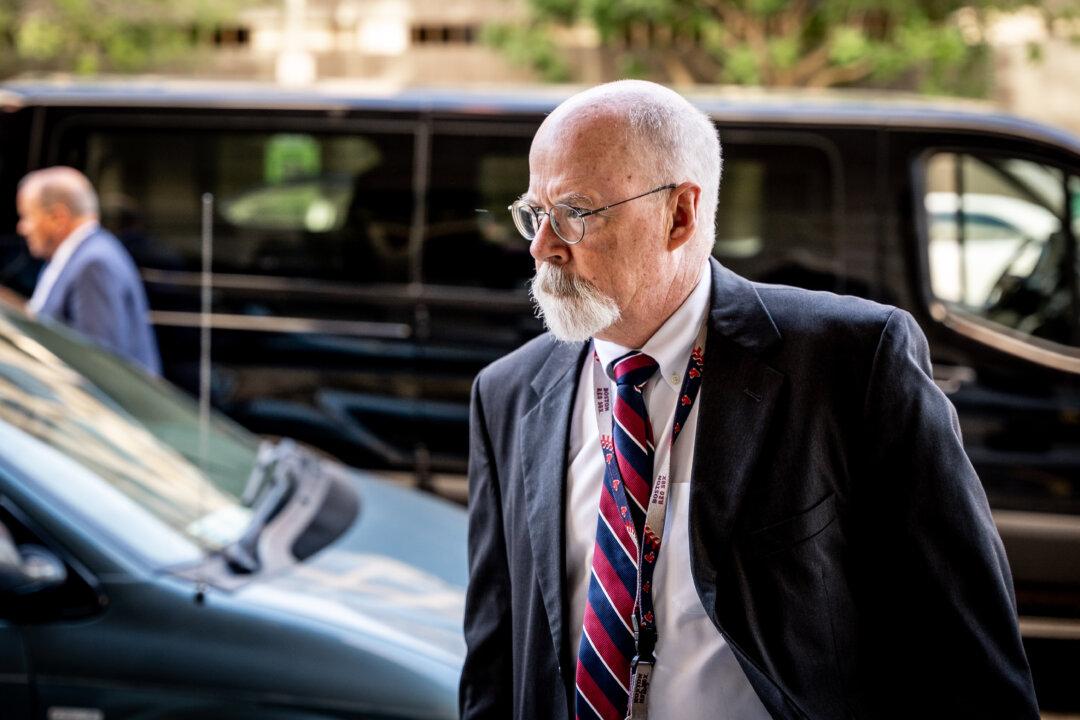WASHINGTON—Prosecutors and defense lawyers agreed on one point on May 27—that former Hillary Clinton campaign lawyer Michael Sussmann told the FBI he was not bringing claims about Donald Trump on behalf of the client—but diverged on whether the statement was a lie and whether it was repeated.
Sussmann, of Perkins Coie, texted then-FBI lawyer James Baker on Sept. 18, 2016. He said he had something “time sensitive (and sensitive) to discuss,” and that he was not coming forward on behalf of a client.






